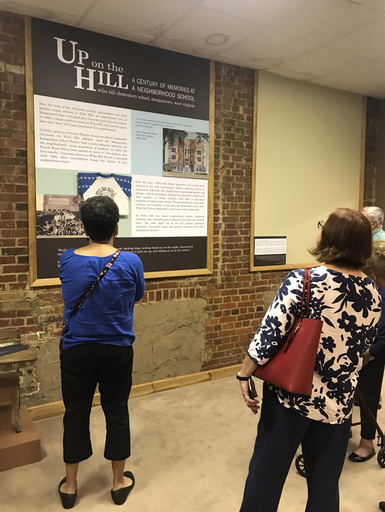|
By Sarah Hanna
One interviewee was Jill Thomas, who was a teacher at Wiles Hill in the 1970s and 80s. She reflected on how Wiles Hill was such a special place to work due to its small size and community involvement. Another interviewee, Sam Wilkinson, was a student in the 1990s. He was a high school student when Wiles Hill closed, and he recalled attending Board of Education meetings to advocate in favor of keeping the school open. Consolidation of schools was a trend in the late twentieth and early twenty-first century that caused the closure of neighborhood schools throughout the United States. Opponents argued that a more hands-on approach with smaller class sizes was preferable. Misty Williamson was a student at Wiles Hill in the 1970s and recalled the evolution of the Wiles Hill neighborhood from mostly families to college student rentals. The increase in college students and the closing of the neighborhood school both worked to dramatically change the demographics and culture of Wiles Hill.
While reflecting on this evolution can highlight how much the neighborhood has lost over the years, it also serves a positive purpose. Not only can it be cathartic, it also helps to preserve what the school and neighborhood once were. Oral history serves as a tool for the preservation of everyday history, and for when personal memories can tell us something different from the other archival records available. Comments are closed.
|
Preserve WV StoriesCategories
All
Archives
August 2023
|
Get Involved |
Programs |
Contact UsPreservation Alliance of West Virginia
421 Davis Avenue, #4 | Elkins, WV 26241 Email: [email protected] Phone: 304-345-6005 |
Organizational Partners:
© COPYRIGHT 2022 - PRESERVATION ALLIANCE OF WEST VIRGINIA. ALL RIGHTS RESERVED.



 RSS Feed
RSS Feed



